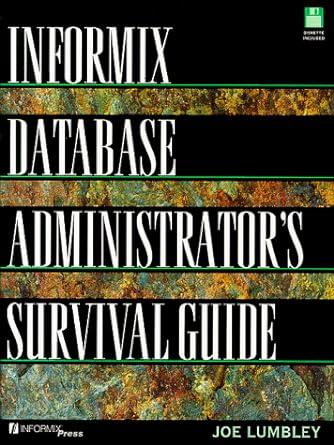Question
Problem 1 Which point maximizes the objective function: max x + 5y subject to the constraints x + 2y = 0 options: a.) (0,5) b.)
Problem 1
Which point maximizes the objective function:
max x + 5y
subject to the constraints
x + 2y = 0
options:
a.) (0,5) b.) (2,4) c.) (3,0) d.) (1,3) e.) (2,6)
Problem 2
The Acme Company produces four types of widgets: A, B, C and D. The profit per widget and the resource usage of each type of widget is given in the table below:
| Widget Type | A | B | C | D |
| profit ($) | 10 | 15 | 7 | 8 |
| Labor (hrs) | 2 | 1 | 3 | 1.5 |
| Material (lbs) | 3 | 2.5 | 6 | 5 |
| Water (gallons) | 10 | 12 | 8 | 9 |
There are 100 hours of labor, 500 lbs of material and 1000 gallons of water available. If the goal is to maximize the total profit then the objective function is: (the variables A, B ,C & D are the number of widgets of each type producead)
Options
a.) min 10A + 12B + 8C + 9D b.) min 10A + 15B + 7C + 8D c.) max 10A + 15B + 7C + 8D d.) max A + B + C + D
Problem 3
Consider the single-pair shortest path problem in a weighted directed graph G=(V, E) from a vertex s to t, where s denotes the source vertex and t represents the target/sink vertex. Let dv denote the distance of any vertex v from the source vertex s. Moreover, let w(u,v) represent the weight of the edge (u,v). For each vertex z  s, consider the set Distancesz, where
s, consider the set Distancesz, where
Distancesz = { d(u,z) | where d(u,z) = du + w(u,z) for each edge (u,z) in E }
To solve the single-pair shortest path problem using linear programming, we create the following linear program:
maximize dt
subject to
dv - du w(u,v) for each edge (u,v) in E
ds = 0
Is it ok that we maximize dt ? Why?
Select all that applies.
MULTI-CHOICE - SELECT ALL THAT APPLY:
(a) Yes, because minimizing it would result in an optimal solution where the distances of all vertices would be zero.
(b) No. We should formulate it as a minimization linear program.
(c) Yes, because an optimal solution requires the distance of the vertex z (i.e., dz) to be the largest value that is less than or equal to the minimum of the values in Distancesz .
(d) Yes, because both minimization and maximization would find the shortest path.
Step by Step Solution
There are 3 Steps involved in it
Step: 1

Get Instant Access to Expert-Tailored Solutions
See step-by-step solutions with expert insights and AI powered tools for academic success
Step: 2

Step: 3

Ace Your Homework with AI
Get the answers you need in no time with our AI-driven, step-by-step assistance
Get Started


